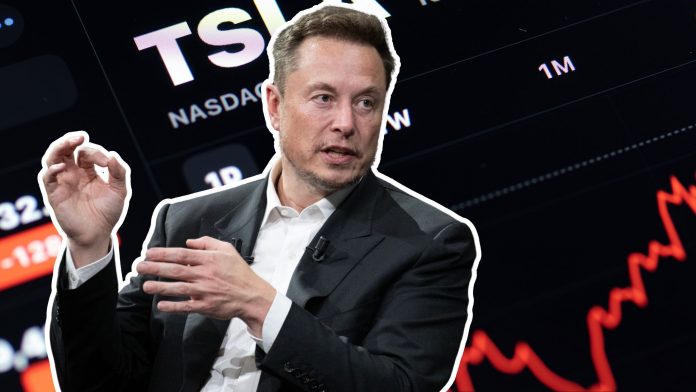Tesla shares fell 7.3% on Thursday to close at $252.40, reversing a major rally from the previous day and adding to mounting investor concerns over new trade tariffs, margin pressures, and deteriorating brand momentum. The drop erased part of Wednesday’s 23% surge—Tesla’s second-biggest rally on record—and deepened its 2025 stock decline to 38%, the sharpest among tech’s mega-cap companies.
The selloff followed White House clarifications that President Donald Trump’s revised trade policy will sharply raise tariffs on Chinese imports to 145%, with China responding with an 84% reciprocal tariff on U.S. goods, effective April 10. The European Union also announced it will impose reciprocal tariffs on American products. These developments reignited fears over Tesla’s cost structure, as the company relies heavily on global supply chains for parts and materials.
In addition, the stock’s volatility drew additional pressure from Wall Street. UBS, Goldman Sachs, and Mizuho all lowered their price targets on Tesla Thursday, citing the margin impact of Trump’s auto tariffs and growing demand uncertainty. UBS, maintaining a “sell” rating and a $190 target, warned the company is “downward sloping” in a “skittish market,” calling its valuation overstretched relative to other Magnificent Seven stocks.
Furthermore, Tesla’s brand has suffered recently due to declining deliveries, protests, and attacks on its facilities and vehicles. CEO Elon Musk, a top adviser to President Trump, has further drawn attention with political comments, including support for Germany’s far-right AfD party. His endorsement has drawn backlash in Europe, where Tesla’s first-quarter sales declined, according to the European Automobile Manufacturers’ Association and other sources.
The company’s international growth, once dependent on selling high volumes of EVs and battery systems in Europe and Asia, now faces pressure from rising global competition and mounting tariff-related costs.
Tesla’s stock swing also highlighted renewed activity among short sellers. According to S3 Partners, Tesla’s short interest stood at 80.5 million shares as of Thursday, with a notional short value of $17.9 billion—among the top four equity shorts. Short sellers, who profit from stock declines, were squeezed during Wednesday’s surge but benefited from Thursday’s correction.
Navarro is truly a moron. What he says here is demonstrably false.
— Elon Musk (@elonmusk) April 8, 2025
Musk added fuel to the fire earlier this week by lashing out at White House trade adviser Peter Navarro on social media, calling him “a moron.” Still, Musk has backed the administration’s hard stance on China, reposting U.S. Treasury Secretary Scott Bessent’s remarks accusing Beijing of running an “imbalanced economy” built on subsidized exports.




